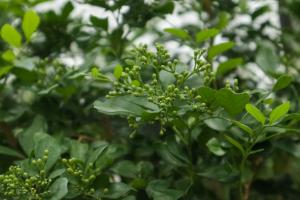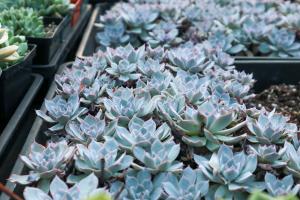Will Rain Hurt THC Pot Plant
THC pot plants are sensitive to their environment and require specific conditions for optimal growth. Rain can be a helpful source of water for the plants, but it can also cause damage if the conditions are not appropriate. In this article, we will explore whether rain will hurt THC pot plants and what growers can do to mitigate any negative effects.
The Benefits of Rainwater for THC Pot Plants
Rainwater is often preferred as a source of water for THC pot plants as it is free from contaminants and minerals found in tap water. Additionally, rainwater contains nitrogen, which is essential for the growth of the plants. Rainwater can also help to balance the pH levels of the soil, which is crucial for the absorption of nutrients by the plants.
Another benefit of rainwater is that it can help to oxygenate the soil, which promotes the growth of the roots. This can result in stronger and healthier plants, which are less susceptible to disease and pest infestations.
The Risks of Rainwater for THC Pot Plants
While rainwater can be beneficial for THC pot plants, it can also present some risks. One of the primary concerns is the potential for overwatering, which can lead to root rot and other related problems. Heavy rainfall can cause the soil to become saturated, and excess water can drown the roots of the plants.
Another risk associated with rainwater is the possibility of contaminated water. Acid rain, for example, can be harmful to plants, as it can increase the soil's acidity levels and leach essential nutrients out of the soil. Similarly, pollutants and chemicals in the air can be carried by rainwater and deposited onto the plants, which can negatively impact their growth and health.
How to Protect THC Pot Plants from Rain Damage
Growers can take several precautions to protect THC pot plants from rain damage. One way to minimize the risks is to ensure that the plants are planted in well-draining soil, which can help to prevent overwatering. Additionally, growers should avoid planting in low-lying areas where water can pool and accumulate.
Another preventative measure is to cover the plants during heavy rainfall. This can be done using tarps or other types of protective coverings. This can help to prevent excess water from saturating the soil, as well as protect the plants from contaminants in the rainwater.
Lastly, monitoring the weather forecast can help growers to prepare for upcoming rain events. If heavy rainfall is expected, growers can adjust their watering schedules and take other precautions, such as moving potted plants under shelter.
Conclusion
Rain can be beneficial for THC pot plants as it provides the plants with a source of water, oxygen, and essential nutrients. However, heavy rainfall can also present risks, such as overwatering and contaminated water. Growers can protect their plants from rain damage by planting in well-draining soil, covering plants during heavy rainfall, and monitoring the weather forecast. By taking these precautions, growers can ensure that their THC pot plants remain healthy and thriving, even during rainy conditions.

 how many times do yo...
how many times do yo... how many planted tre...
how many planted tre... how many pine trees ...
how many pine trees ... how many pecan trees...
how many pecan trees... how many plants comp...
how many plants comp... how many plants can ...
how many plants can ... how many plants and ...
how many plants and ... how many pepper plan...
how many pepper plan...



























